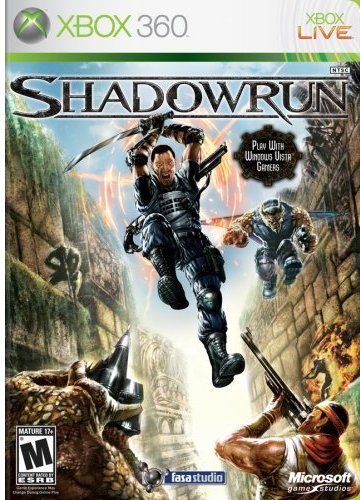While many of this year’s highly anticipated titles like Crysis, Halo 3, Super Mario Galaxy, and Uncharted all delivered on their promises of greatness, a few high-profile releases fell short of the expectations of fans and critics alike. As 2007 comes to a close, let’s look back and examine some of the year’s greatest video game disappointments on each of the platforms.
Wii: Manhunt 2 (GameRankings.com score 65.4%)
Although nobody expected Manhunt 2 to be a ‘AAA’ title, hardcore Wii owners were genuinely excited about the prospect of playing a genuine ‘murder simulator’ in their living rooms. Considering the abundance of child-friendly fare available on Nintendo’s new console, it was exciting to see Nintendo finally making good on Reggie Fils-Aime’s promise that their new platform would feature more adult-oriented titles than previous Nintendo generations. During the summer of 2007 the ESRB rated the game AO, effectively blacklisting the game altogether, thereby increasing the hype surrounding the game to epic proportions. Several months later, developer Rockstar eventually released a watered down version featuring visually obscured acts of violence, effectively removing the only appealing aspect of the game. In the end, it isn’t Manhunt 2 that was the big disappointment, but rather the ESRB’s ability to stifle artistic expression that concerned grown-up gamers the world over.
PS3: Lair (GameRankings.com score 56.8%)
Lair was supposed to be one of the jewels in Sony’s crown this quarter. Touted as having innovative controls and spectacular graphics, Lair was poised to raise the bar for flight-based action titles and usher in the much needed era of high quality PS3 exclusives. However, instead of giving players the choice between analog and Sixaxis motion controls as is the case with nearly every other PS3 title, veteran developers Factor 5 allegedly kowtowed to Sony’s requests to only offer tilt-based play, ostensibly as a means of justifying the feature in the PlayStation 3. As a result, Lair’s game play was so imprecise it made high level play neigh impossible, allowing players to soldier through the game, but little more. Questionable auto-targeting issues made a bad situation even worse, and the game ended up being one of the biggest letdowns of 2007. As an amusing side note, included in one of Lair’s special behind the scenes bonus developer diaries, lead developer at Factor 5 Julian Eggebrecht says, “When we first showed the tilt controls to the team, they all said ‘This is crap.’” Who has egg on their face now, Eggebrecht?
360: Shadowrun (GameRankings.com score 68.9%)
As the first game to offer cross console play between Xbox Live and Live for Windows, Shadowrun was supposed to break down hardware barriers and legitimize Microsoft’s ‘Games For Windows’ brand. Sadly, the game shipped without a single-player component, just 9 maps, a mere 2 game modes, and a fee for cross platform play. None of this stopped Microsoft from charging $60 for the bare-bones game, and as a result, critics everywhere focused more on Shadowrun’s price tag than its content. It’s a shame too, because had Shadowrun been a value title at, say, $30, it could have appealed to penny pinching gamers with its deep tactical play reminiscent of Counter Strike. Microsoft’s failure to realize that gamers don’t want to pay full price for an online-only game cost the studio dearly. Since Shadowrun’s release, the development team FASA has been disbanded, with some of its members joining Microsoft’s Games for Windows team. Shadowrun serves as a clear example of how publishing can make or break a title, and sent a message through the industry that consumers don’t want to pay full price for ‘half a game.’
PC: Hellgate: London (GameRankings.com score 71%)
Until recently, Flagship Studios was held in extremely high regard for creating the beloved Diablo series. When it was announced that Flagship’s latest offering, Hellgate: London, would combine the hack-and-slash RPG goodness of Diablo with powerful graphics and a greater emphasis on action, the majority of critics expected another monumental success. Despite being in development for five years, the game launched with an astonishing number of bugs, a cumbersome menu system, a weak story, and dull randomly generated levels. Complicating these problems, Flagship decided to offer two tiers of play, a free option that offered basic levels and items and solo play, or a subscription service that allowed gamers to team up and access new content. Well, in the end neither tier was an attractive option, since players who decided to pay the monthly fee felt like they weren’t offered much beyond the free experience, and gamers who didn’t pay couldn’t shake the feeling that they were missing out on the total package. Although Hellgate: London may improve with patching, its initial lukewarm response has damaged Flagship’s reputation for gaming excellence, and disappointed PC gamers everywhere.
